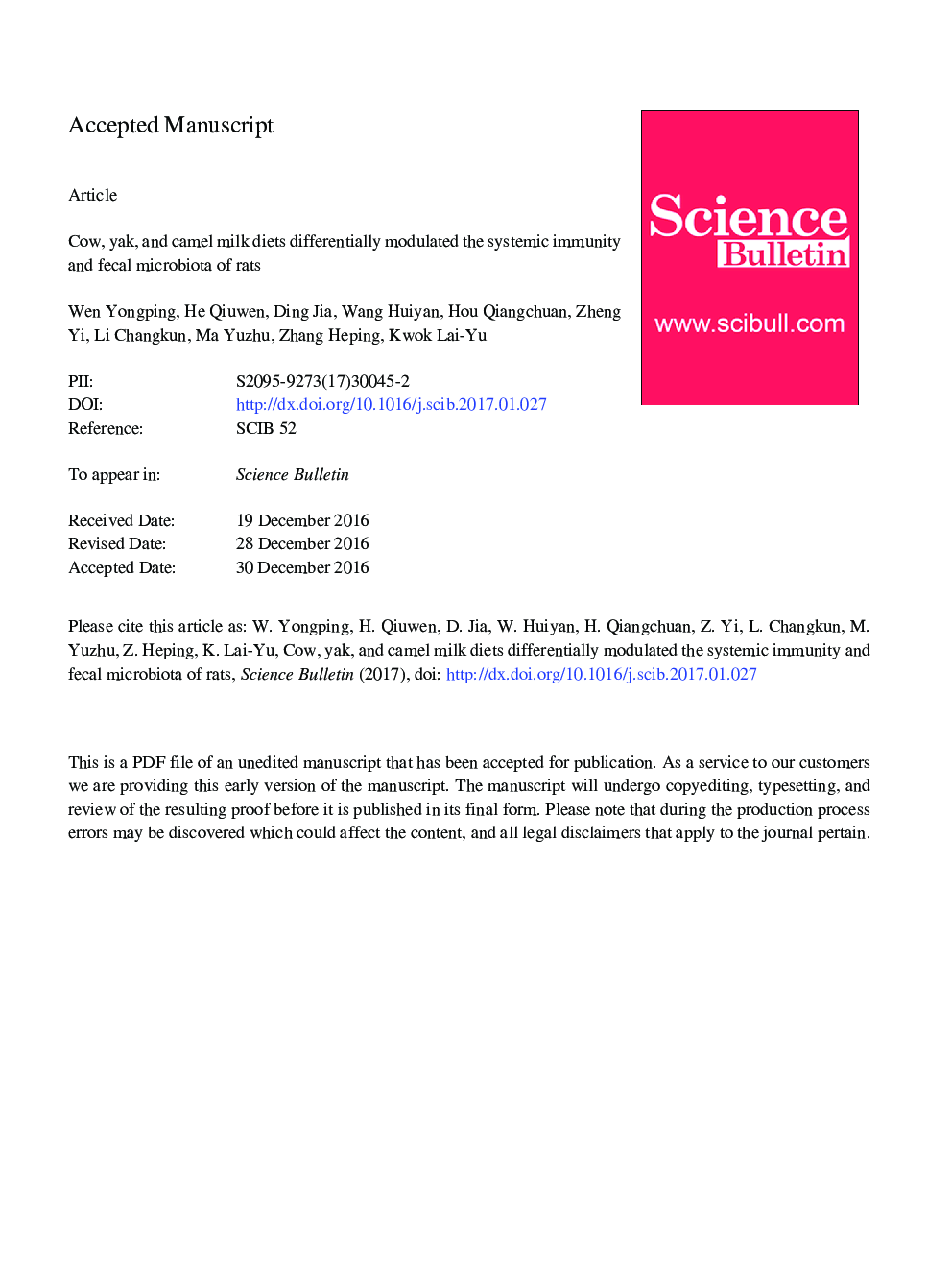| کد مقاله | کد نشریه | سال انتشار | مقاله انگلیسی | نسخه تمام متن |
|---|---|---|---|---|
| 5788809 | 1414272 | 2017 | 33 صفحه PDF | دانلود رایگان |
عنوان انگلیسی مقاله ISI
Cow, yak, and camel milk diets differentially modulated the systemic immunity and fecal microbiota of rats
ترجمه فارسی عنوان
رژیم های شیر گاو، یوک و شتر، به طور اختیاری، ایمنی سیستمیک و میکروبیولوژیک مدفوع موش صحرایی
دانلود مقاله + سفارش ترجمه
دانلود مقاله ISI انگلیسی
رایگان برای ایرانیان
موضوعات مرتبط
مهندسی و علوم پایه
شیمی
شیمی (عمومی)
چکیده انگلیسی
Cow milk is most widely consumed; however, non-cattle milk has gained increasing interest because of added nutritive values. We compared the health effects of yak, cow, and camel milk in rats. By measuring several plasma immune factors, significantly more interferon-γ was detected in the camel than the yak (P = 0.0020) or cow (P = 0.0062) milk group. Significantly more IgM was detected in the yak milk than the control group (P = 0.0071). The control group had significantly less interleukin 6 than the yak (P = 0.0499) and cow (P = 0.0248) milk groups. The fecal microbiota of the 144 samples comprised mainly of the Firmicutes (76.70 ± 11.03%), Bacteroidetes (15.27 ± 7.79%), Proteobacteria (3.61 ± 4.34%), and Tenericutes (2.61 ± 2.53%) phyla. Multivariate analyses revealed a mild shift in the fecal microbiota along the milk treatment. We further identified the differential microbes across the four groups. At day 14, 22 and 28 differential genera and species were identified (P = 0.0000-0.0462), while 8 and 11 differential genera and species (P = 0.0000-0.0013) were found at day 28. Some short-chain fatty acid and succinate producers increased, while certain health-concerned bacteria (Prevotella copri, Phascolarctobacterium faecium, and Bacteroides uniformis) decreased after 14 days of yak or camel milk treatment. We demonstrated that different animal milk could confer distinctive nutritive value to the host.
ناشر
Database: Elsevier - ScienceDirect (ساینس دایرکت)
Journal: Science Bulletin - Volume 62, Issue 6, 30 March 2017, Pages 405-414
Journal: Science Bulletin - Volume 62, Issue 6, 30 March 2017, Pages 405-414
نویسندگان
Yongping Wen, Qiuwen He, Jia Ding, Huiyan Wang, Qiangchuan Hou, Yi Zheng, Changkun Li, Yuzhu Ma, Heping Zhang, Lai-Yu Kwok,
